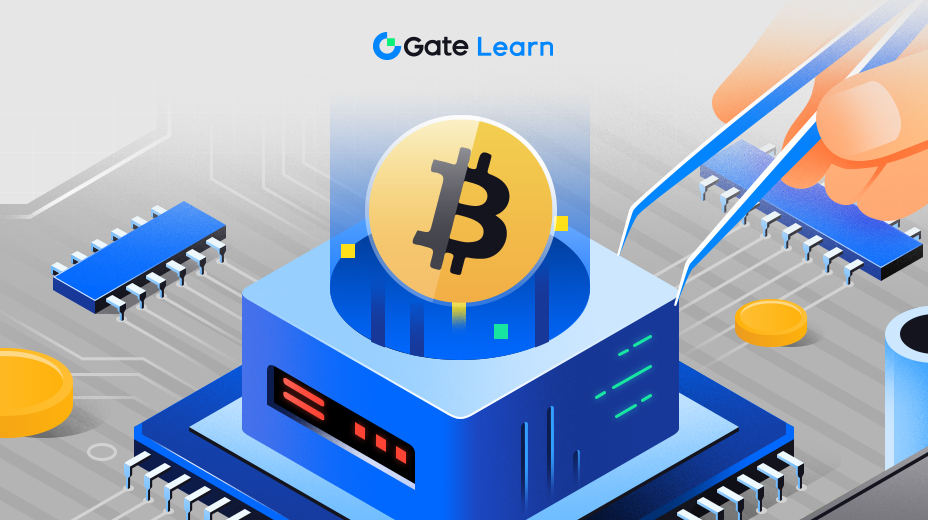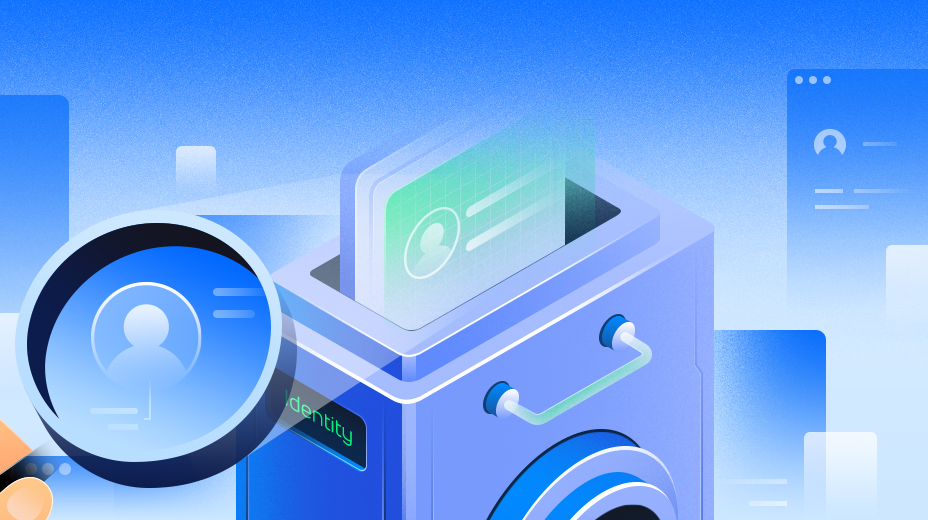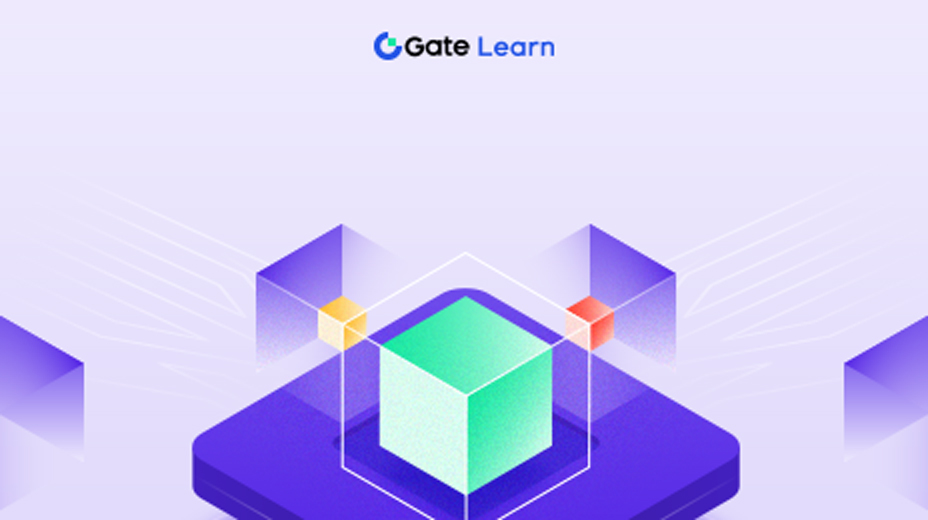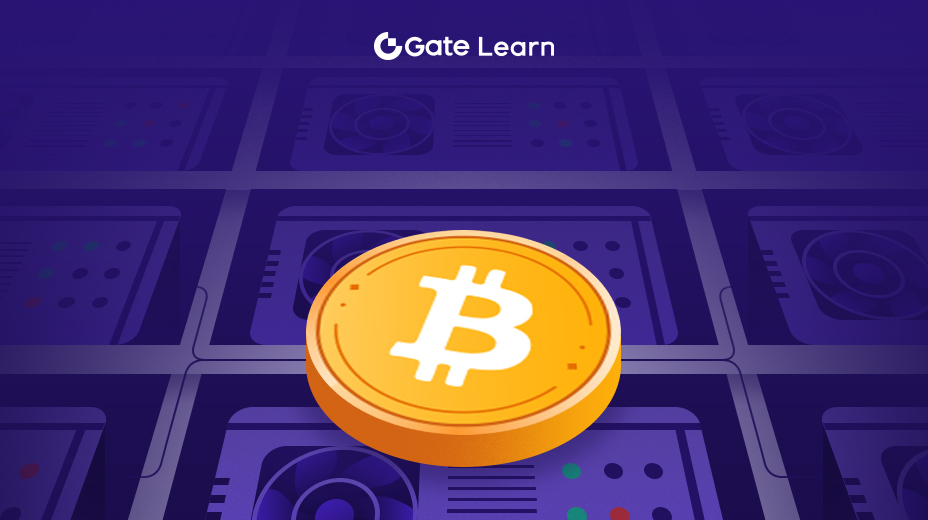حالات استخدام رموز Oracle والعقود الذكية والأوراكل: حالات الاستخدام
تحتوي العقود الذكية والأوراكل على العديد من حالات الاستخدام، بما في ذلك إدارة سلسلة التوريد والتحقق من الهوية والمعاملات العقارية.
العقود الذكية والأوراكل: حالات الاستخدام
تعد العقود الذكية ميزة مركزية لتقنية بلوكتشين، مما يسمح بتنفيذ الاتفاقيات الآلية غير الموثوقة. ومع ذلك، من أجل العمل بفعالية، تحتاج العقود الذكية غالبًا إلى الوصول إلى البيانات من مصادر خارجية غير متوفرة محليًا على بلوكتشين. هذا هو المكان الذي يمكن أن تلعب فيه Oracle Tokens دورًا مهمًا، حيث توفر جسرًا بين مصادر البيانات داخل السلسلة وخارجها. في هذه الوحدة، سوف نستكشف بعض حالات الاستخدام الواعدة لـ Oracle Tokens في تطبيقات العقود الذكية.
واحدة من حالات الاستخدام الأكثر وضوحًا لـ Oracle Tokens هي في مجال التطبيقات المالية. على سبيل المثال، تتطلب البورصات اللامركزية (DEXs) تغذية أسعار دقيقة من أجل تنفيذ الصفقات بفعالية. باستخدام Oracle Tokens لجلب البيانات من مصادر خارجية موثوقة، يمكن لـ DEXs تزويد المستخدمين بمعلومات التسعير المحدثة والتأكد من تنفيذ الصفقات بشكل عادل.
هناك حالة استخدام محتملة أخرى لـ Oracle Tokens في صناعة التأمين. تعتمد بوالص التأمين الذكية القائمة على العقود، والمعروفة باسم «التأمين البارامتري»، على البيانات الخارجية لتحديد متى يجب إجراء الدفع. على سبيل المثال، قد تتم برمجة بوليصة تأمين المحاصيل للدفع إذا تم تجاوز حد معين لدرجة الحرارة خلال موسم النمو. يمكن استخدام Oracle Tokens لجلب بيانات الطقس من مصادر خارجية وتشغيل المدفوعات التلقائية عند استيفاء الشروط.
في صناعة الألعاب، يمكن استخدام Oracle Tokens لتوفير عشوائية يمكن التحقق منها للألعاب مثل اليانصيب أو الكازينوهات على الإنترنت. باستخدام شبكة Oracle اللامركزية لتوليد أرقام عشوائية، يمكن لمشغلي الألعاب التأكد من أن نتائج ألعابهم عادلة وغير متحيزة.
يمكن أيضًا استخدام Oracle Tokens في تطبيقات إدارة سلسلة التوريد، حيث يمكن استخدامها للتحقق من صحة ومصدر البضائع. من خلال جلب البيانات من مصادر خارجية مثل علامات RFID أو أجهزة تعقب GPS، يمكن لـ Oracle Tokens توفير سجل مقاوم للتلاعب لرحلة المنتج من الشركة المصنعة إلى المستهلك.
هناك حالة استخدام محتملة أخرى لـ Oracle Tokens في مجال التحقق من الهوية. وباستخدام «أوراكل» لجلب البيانات من مصادر موثوقة مثل قواعد البيانات الحكومية أو مكاتب الائتمان، يمكن لأنظمة الهوية القائمة على بلوكتشين التحقق من هوية المستخدمين دون الحاجة إلى سلطة مركزية.
في المجال القانوني، يمكن استخدام Oracle Tokens لتقديم دليل على وجود المستندات القانونية مثل العقود أو براءات الاختراع. ومن خلال تخزين هاش المستند على بلوكتشين واستخدام أوراكل للتحقق من أصالته، يمكن للأطراف التأكد من أن المستند شرعي ولم يتم العبث به.
في مجال الرعاية الصحية، يمكن استخدام Oracle Tokens لمشاركة بيانات المرضى بأمان بين مقدمي الرعاية الصحية. باستخدام Oracles المشفرة لجلب البيانات من السجلات الصحية الإلكترونية وغيرها من المصادر، يمكن لمقدمي الرعاية الصحية ضمان الحفاظ على خصوصية بيانات المرضى وأمانها.
في قطاع الطاقة، يمكن استخدام Oracle Tokens للتحقق من إنتاج واستهلاك الطاقة المتجددة. من خلال جلب البيانات من العدادات الذكية والمصادر الأخرى، يمكن لـ Oracle Tokens توفير سجل مقاوم للتلاعب لإنتاج الطاقة المتجددة وضمان منح ائتمانات الطاقة بدقة.
في الحوكمة اللامركزية، يمكن استخدام Oracle Tokens لتمكين اتخاذ القرار اللامركزي بناءً على البيانات الخارجية. على سبيل المثال، قد تستخدم منظمة لامركزية Oracle لجلب بيانات التصويت من مصدر خارجي مثل لجنة الانتخابات الحكومية، مما يسمح للأعضاء بالتصويت على المقترحات بناءً على بيانات خارجية يمكن التحقق منها.
التمويل اللامركزي (DeFi) وأوراكل: حالات الاستخدام
يعد التمويل اللامركزي، المعروف باسم DeFi، قطاعًا سريع النمو في صناعة blockchain. يشير DeFi إلى نظام مالي مبني على شبكات لامركزية، حيث يتم تنفيذ المعاملات المالية بدون وسطاء مثل البنوك أو الحكومات أو أطراف ثالثة أخرى. تلعب Oracles دورًا مهمًا في تطبيقات DeFi من خلال توفير بيانات موثوقة ودقيقة خارج السلسلة للعقود الذكية التي تنفذ المعاملات المالية.
تتمثل إحدى حالات الاستخدام الأساسية لـ oracles في DeFi في توفير موجز أسعار للأصول. تعتمد بروتوكولات DeFi على معلومات تسعير دقيقة ومحدثة للأصول لتنفيذ المعاملات المالية مثل الاقتراض والإقراض والتداول. تقوم Oracles باسترداد بيانات الأسعار من مصادر مختلفة، مثل البورصات المركزية والتبادلات اللامركزية، لضمان أن الأسعار المستخدمة في معاملات DeFi دقيقة وشفافة.
حالة استخدام أخرى لـ oracles في DeFi هي توفير بيانات الضمان. الضمان هو عملية توفير الأصول كضمان للحصول على قرض أو تداول بالهامش. لتنفيذ هذه المعاملات، تتطلب بروتوكولات DeFi بيانات دقيقة وموثوقة عن قيمة الأصول الضمانية. توفر Oracles هذه البيانات من خلال استرداد المعلومات من مصادر مختلفة مثل التبادلات المركزية والتبادلات اللامركزية ومجمعات السيولة الأخرى.
بالإضافة إلى توفير موجز الأسعار وبيانات الضمان، تلعب oracles أيضًا دورًا في ضمان أمان بروتوكولات DeFi. تعتبر العقود الذكية التي تنفذ المعاملات المالية عرضة للقرصنة والتهديدات الأمنية الأخرى، ويمكن أن تساعد Oracle في التخفيف من هذه المخاطر من خلال توفير بيانات خارج السلسلة للعقود. هذا يضمن أن العقود الذكية تنفذ المعاملات بناءً على معلومات دقيقة وموثوقة، وبالتالي تقليل مخاطر الأنشطة الاحتيالية.
يمكن لـ Oracles مساعدة بروتوكولات DeFi لتوسيع عروض منتجاتها من خلال تمكين تكامل مصادر البيانات الجديدة. على سبيل المثال، يمكن لـ oracles توفير بيانات الطقس، والتي يمكن استخدامها لإنشاء منتجات تأمين ضد الكوارث الطبيعية. هذا يعزز تنوع بروتوكولات DeFi ويوسع قاعدة مستخدميها.
يمكن لـ Oracles أيضًا تمكين المعاملات عبر السلاسل في تطبيقات DeFi. تشير المعاملات عبر السلاسل إلى تبادل الأصول بين شبكات blockchain المختلفة. يمكن لـ Oracles تسهيل المعاملات عبر السلاسل من خلال توفير بيانات موثوقة حول قيمة الأصول على شبكات blockchain المختلفة. يتيح ذلك للمستخدمين تبادل الأصول عبر شبكات blockchain المختلفة، وبالتالي تعزيز قابلية التشغيل البيني لبروتوكولات DeFi.
التأمين والأوراكل: حالات الاستخدام
تحتاج شركات التأمين إلى مصدر بيانات موثوق وجدير بالثقة لإنشاء منتجات التأمين وتقييم المخاطر وتسوية المطالبات. يمكن أن توفر رموز Oracle حلاً آمنًا ولامركزيًا لهذه الاحتياجات. سوف تستكشف هذه الوحدة كيف يمكن استخدام رموز أوراكل في صناعة التأمين.
تحتاج شركات التأمين إلى كمية هائلة من البيانات لإنشاء السياسات وحساب الأقساط وتقييم المطالبات. تشمل مصادر البيانات التقليدية البيانات الحكومية ووكالات التصنيف الائتماني والمؤسسات المالية. ومع ذلك، قد لا تكون هذه المصادر جديرة بالثقة، وقد تكون عرضة للتلاعب، وقد لا تكون متاحة في الوقت الفعلي. يمكن أن توفر رموز Oracle مصدر بيانات آمنًا ولامركزيًا يمكنه توفير بيانات دقيقة وموثوقة وفي الوقت الفعلي لشركات التأمين.
يمكن استخدام العقود الذكية لإنشاء بوالص تأمين لامركزية تتسم بالشفافية والأمان. يمكن تخصيص هذه السياسات لتلبية الاحتياجات المحددة للمؤمن عليه، ويمكن تسوية المطالبات تلقائيًا بناءً على البيانات المقدمة من قبل oracle tokens. هذا يلغي الحاجة إلى الوسطاء ويقلل من مخاطر الاحتيال.
التأمين البارامتري هو نوع من التأمين الذي يتم دفعه عند وقوع حدث محدد مسبقًا، مثل كارثة طبيعية. يمكن أن توفر رموز Oracle بيانات في الوقت الفعلي عن أنماط الطقس والنشاط الزلزالي والأحداث الأخرى ذات الصلة، والتي يمكن أن تؤدي إلى المدفوعات تلقائيًا. هذا يلغي الحاجة إلى خبراء التأمين ويسرع عملية المطالبات.
يعد الاحتيال في مجال التأمين مشكلة كبيرة في صناعة التأمين، حيث يكلف الشركات مليارات الدولارات كل عام. يمكن استخدام رموز Oracle للكشف عن الاحتيال من خلال توفير بيانات في الوقت الفعلي عن سلوك وأنشطة المؤمن عليه. على سبيل المثال، يمكن استخدام البيانات من وسائل التواصل الاجتماعي وأجهزة إنترنت الأشياء والمصادر الأخرى لاكتشاف السلوك المشبوه وبدء التحقيقات.
يمكن استخدام رموز Oracle لأتمتة عملية تسوية المطالبات، مما يقلل من وقت وتكلفة تسوية المطالبات. يمكن استخدام العقود الذكية لحساب العائد تلقائيًا استنادًا إلى البيانات المقدمة من رموز oracle. هذا يلغي الحاجة إلى أدوات الضبط ويقلل من مخاطر الخطأ البشري.
إعادة التأمين هي ممارسة شركات التأمين التي تؤمن نفسها ضد الخسائر الكارثية من خلال شراء التأمين من شركات أخرى. يمكن استخدام رموز Oracle لتوفير بيانات في الوقت الفعلي عن الأحداث المؤمنة، والتي يمكن استخدامها لبدء المدفوعات من عقود إعادة التأمين تلقائيًا. هذا يقلل من الحاجة إلى الوسطاء ويسرع عملية المطالبات.
التأمين المصغر هو تأمين مصمم للأفراد أو المجموعات ذات الدخل المنخفض. يمكن استخدام رموز Oracle لتوفير منصة آمنة ولامركزية لمنتجات التأمين الصغير. يمكن تخصيص هذه المنتجات لتلبية الاحتياجات المحددة للمؤمن عليه ويمكن تسويتها تلقائيًا بناءً على البيانات المقدمة من oracle tokens.
نقابات ومجمعات التأمين هي مجموعات من شركات التأمين التي تعمل معًا لتوفير تغطية تأمينية لمخاطر محددة. يمكن استخدام رموز Oracle لتوفير منصة آمنة ولامركزية لهذه النقابات والمجمعات، مما يسمح لها بمشاركة البيانات وتسوية المطالبات تلقائيًا.
تكامل Oracle مع التطبيقات اللامركزية
يعد تكامل Oracle مع التطبيقات اللامركزية (dApps) أمرًا بالغ الأهمية لتنفيذ العقود الذكية التي تعتمد على البيانات الخارجية. تمكّن Oracles dApps من التفاعل مع بيانات العالم الحقيقي، وهو أمر ضروري لوظائفها. وبدون أوراكل، ستقتصر التطبيقات اللامركزية على العمل فقط على البيانات الموجودة على بلوكتشين.
عادةً ما يتضمن دمج oracles مع dApps الخطوات التالية:
تحديد البيانات المطلوبة: الخطوة الأولى في دمج oracles مع dApps هي تحديد البيانات المطلوبة لتنفيذ العقد الذكي. قد تتضمن هذه البيانات موجزات الأسعار أو تقارير الطقس أو مصادر البيانات الخارجية الأخرى.
اختيار أوراكل مناسب: بمجرد تحديد البيانات المطلوبة، فإن الخطوة التالية هي اختيار أوراكل مناسب. يتضمن ذلك تقييم الأوراكل المختلفة بناءً على عوامل مثل الموثوقية والدقة والتكلفة.
دمج أوراكل مع dApp: بعد اختيار أوراكل مناسب، فإن الخطوة التالية هي دمجه مع dApp. يتضمن ذلك إنشاء اتصال بين dApp و oracle لتسهيل تبادل البيانات.
التحقق من البيانات: بمجرد أن يوفر أوراكل البيانات المطلوبة إلى dApp، فمن الضروري التحقق من دقة البيانات وأصالتها. قد يتضمن ذلك استخدام خوارزميات التشفير أو آليات التحقق الأخرى لضمان عدم العبث بالبيانات.
تنفيذ العقد الذكي: بمجرد التحقق من البيانات، يمكن تنفيذ العقد الذكي. يتم استخدام البيانات المقدمة من أوراكل لتحديد نتيجة العقد وإطلاق أي إجراءات ضرورية.
الدفع مقابل خدمات oracle: أخيرًا، يجب أن يدفع dApp مقابل خدمات oracle المقدمة. قد يشمل ذلك استخدام رموز أوراكل أو العملات الرقمية الأخرى لتعويض أوراكل عن خدماتها.
أتاح تكامل oracles مع dApps تطوير مجموعة واسعة من التطبيقات اللامركزية التي تعتمد على مصادر البيانات الخارجية. على سبيل المثال، تستخدم تطبيقات التمويل اللامركزي (DeFi) أوراكل للحصول على موجز أسعار الأصول المختلفة، والتي تعتبر ضرورية لعملها. وبالمثل، تستخدم تطبيقات إدارة سلسلة التوريد أوراكل لتتبع حركة البضائع والتحقق من أصالتها.
تشاينلينك
Chainlink هي شبكة أوراكل لامركزية توفر عقودًا ذكية مع إمكانية الوصول إلى بيانات العالم الحقيقي والموارد خارج السلسلة. يعد تكامل Chainlink مع dApps مكونًا مهمًا لوظائف شبكة oracle، حيث إنه يمكّن العقود الذكية من التفاعل مع مصادر البيانات الخارجية وتشغيل إجراءات محددة مسبقًا بناءً على البيانات المستلمة.
تبدأ عملية التكامل بنشر عقدة Chainlink oracle. تعمل هذه العقدة كوسيط بين العقد الذكي ومصدر البيانات الخارجي، مما يوفر اتصالًا آمنًا وموثوقًا بين الاثنين. بمجرد نشر عقدة oracle، يمكن تكوين dApp للتفاعل مع شبكة Chainlink باستخدام واجهة برمجة التطبيقات المناسبة.
عندما يتطلب العقد الذكي بيانات خارجية لتنفيذ وظائفه المحددة مسبقًا، فإنه يرسل طلبًا إلى عقدة Chainlink oracle. تقوم عقدة oracle بعد ذلك باسترداد البيانات المطلوبة من مصدر البيانات الخارجي وإعادتها إلى العقد الذكي. يتم تسهيل هذه العملية من خلال استخدام شبكة أوراكل اللامركزية الخاصة بـ Chainlink، والتي تضمن أمان وموثوقية البيانات المقدمة.
يتيح تكامل Chainlink مع dApps للعقود الذكية التفاعل مع الأحداث والظروف الواقعية، مثل أسعار السوق والظروف الجوية والنتائج الرياضية. يعمل هذا الوصول إلى مصادر البيانات الخارجية على توسيع وظائف العقود الذكية خارج نطاقها التقليدي، مما يسمح بتطبيقات أكثر تعقيدًا وتعقيدًا.
كما أنه يوفر القدرة على تشغيل إجراءات محددة مسبقًا استنادًا إلى البيانات المستلمة. على سبيل المثال، يمكن تكوين عقد ذكي لتنفيذ التجارة تلقائيًا بناءً على التغيير في أسعار السوق. تتيح هذه الأتمتة إنشاء عقود ذاتية التنفيذ، والتي يمكن أن تعمل بشكل مستقل عن التدخل البشري.
يوفر تكامل Chainlink مع dApps أيضًا مزيدًا من الأمان والموثوقية. باستخدام شبكة أوراكل اللامركزية، يتم التحقق من البيانات المقدمة للعقود الذكية والتحقق من صحتها من خلال عقد متعددة، مما يقلل من مخاطر التلاعب بالبيانات أو التلاعب بها. يعد هذا الأمان والموثوقية المحسنان من المكونات الأساسية لتقنية بلوكتشين، حيث تكون الثقة ضرورية لعمل الشبكة.
بروتوكول النطاق
يتضمن تكامل Band Protocol مع dApps استخدام oracles، المسؤولة عن استرداد البيانات من المصادر الخارجية وإدخالها في العقود الذكية. تستخدم أوراكل Band Protocol نهج الحساب متعدد الأطراف (MPC) لضمان دقة البيانات ومنع معالجة البيانات، مما يضمن سلامة البيانات لـ dApps.
لدمج بروتوكول Band مع dApp، يجب على المطورين أولاً نشر العقود الذكية التي تتيح التفاعل مع شبكة Band Protocol. تحدد هذه العقود الذكية مصادر البيانات ونقاط النهاية التي سيتم استخدامها لاسترداد البيانات المطلوبة.
بمجرد نشر العقود الذكية، يتم إرسال طلبات البيانات إلى شبكة أوراكل الخاصة بـ Band Protocol، والتي تسترد البيانات من نقاط النهاية المحددة. ثم يتم تجميع البيانات المستردة والتحقق من صحتها من خلال نهج MPC قبل إرسالها مرة أخرى إلى العقود الذكية على blockchain. يمكن للعقود الذكية بعد ذلك تنفيذ وظائف محددة مسبقًا استنادًا إلى البيانات المستلمة.
يوفر تكامل Band Protocol مع dApps العديد من الفوائد، بما في ذلك الوصول إلى بيانات العالم الحقيقي، وأتمتة تنفيذ وظائف العقد الذكي، واللامركزية في مصدر البيانات. بالإضافة إلى ذلك، يضمن نهج MPC الخاص بـ Band Protocol أن البيانات دقيقة وموثوقة، مما يمنع الجهات الضارة من التلاعب بالبيانات.
أحد الأمثلة على تكامل Band Protocol مع dApps هو شراكته مع Injective Protocol، وهي منصة تبادل لامركزية مبنية على سلسلة بلوكشين الإيثيريوم. يوفر Band Protocol لشركة Injective إمكانية الوصول إلى موجز الأسعار في الوقت الفعلي من مختلف بورصات العملات المشفرة، مما يسمح بإنشاء المشتقات والمنتجات المالية الأخرى. يعزز هذا التكامل وظائف منصة Injective ويمكّن مستخدميها من تنفيذ المعاملات المالية المعقدة باستخدام بيانات العالم الحقيقي. دخلت Band أيضًا في شراكة مع Polygon (المعروف سابقًا باسم Matic Network)، وهو حل لتوسيع نطاق الطبقة الثانية لإيثريوم. يوفر Band Protocol لـ Polygon إمكانية الوصول إلى خلاصات الأسعار للأصول المختلفة، مما يسمح للمطورين بإنشاء تطبيقات لامركزية تتطلب بيانات الأسعار في الوقت الفعلي. يعمل هذا التكامل على تحسين وظائف شبكة Polygon ويمكّن المطورين من إنشاء مجموعة واسعة من dApps التي تتطلب مصادر بيانات خارجية.
واجهة برمجة التطبيقات 3
API3 هي شبكة أوراكل لامركزية تهدف إلى توفير تغذية بيانات آمنة وموثوقة للتطبيقات اللامركزية (dApps). تم تصميم البروتوكول ليتم دمجه بسهولة مع العديد من شبكات blockchain والتطبيقات اللامركزية. تعمل شبكة API3 من خلال السماح لموفري البيانات بأن يصبحوا مشغلي عقدة وإنشاء واجهات برمجة التطبيقات الخاصة بهم التي توفر البيانات إلى dApps.
للتكامل مع dApps، يوفر API3 واجهة بسيطة سهلة الاستخدام للمطورين. قام فريق API3 بتطوير مكتبة JavaScript تمكن مطوري dApp من توصيل تطبيقهم بشبكة API3. تتيح هذه المكتبة للمطورين طلب البيانات بسهولة من واجهات برمجة التطبيقات المختلفة المتوفرة على شبكة API3.
تستخدم API3 أيضًا نهجًا فريدًا للتحقق من صحة البيانات يسمى Airnode. تعمل Airnode كبرنامج وسيط بين شبكة API3 و dApps، مما يضمن تسليم البيانات بأمان إلى المستلم المقصود. تم تصميم Airnode لتكون قابلة للتطوير بدرجة كبيرة وقادرة على التعامل مع كميات كبيرة من البيانات دون التضحية بالأمان أو الموثوقية.
تم تحسين تكامل API3 مع dApps من خلال نهجها القائم على المجتمع. تُمكّن API3 أعضاء مجتمعها من أن يصبحوا مزودي بيانات ومشغلي عقدة، مما يزيد من توفر خلاصات البيانات ويضمن بقاء الشبكة لامركزية. يضمن هذا الأسلوب أيضًا وصول dApps إلى مجموعة متنوعة من خلاصات البيانات من مصادر موثوقة.
أوما
UMA (الوصول الشامل للسوق) عبارة عن منصة لامركزية تمكن المطورين من إنشاء ونشر عقود مالية مخصصة على Ethereum. تقدم UMA نظام أوراكل لامركزي يربط العقود الذكية بمصادر البيانات في العالم الحقيقي. هذا النظام ضروري للتنفيذ الدقيق للعقود الذكية، ويضمن أن تظل العقود غير موثوقة وآمنة وشفافة.
تم تصميم نظام UMA oracle لتوفير حل مرن ومعياري يمكن تخصيصه لتلبية احتياجات مجموعة واسعة من dApps. يمكن دمجها مع أي منصة عقود ذكية، وتوفر خلاصات البيانات في الوقت الفعلي من مجموعة متنوعة من المصادر، بما في ذلك واجهات برمجة التطبيقات وشبكات blockchain الأخرى. تم تصميم النظام أيضًا ليكون مرنًا للغاية، مع وجود العديد من التكرارات المضمنة لضمان توفر البيانات دائمًا عند الحاجة.
أصبح تكامل UMA مع dApps ممكنًا من خلال العقود المالية التي لا تقدر بثمن (PFCs). PFCs هي عقود مالية يمكن تخصيصها لتتبع أي أصل، من الأدوات المالية التقليدية مثل الأسهم والسندات، إلى العملات المشفرة والسلع والمزيد. إنها تسمح للمطورين بإنشاء عقود مالية قابلة للبرمجة بالكامل يمكن تنفيذها على Ethereum blockchain.
تعتمد PFCs على نظام UMA oracle لتوفير بيانات دقيقة وفي الوقت المناسب للعقود الذكية. يتم استخدام هذه البيانات لبدء تنفيذ العقد، ولضمان تنفيذ العقد بالسعر الصحيح. تم تصميم نظام oracle ليكون قابلاً للتطوير بدرجة كبيرة، بحيث يمكنه التعامل مع كميات كبيرة من البيانات والمعاملات دون إبطاء.
يتمتع نظام oracle الخاص بـ UMA بالقدرة على توفير خلاصات بيانات لامركزية. هذا يعني أن البيانات يتم الحصول عليها من عدة مزودين مستقلين، مما يساعد على التخلص من مخاطر نقطة فشل واحدة. كما تم تصميم النظام ليكون مقاومًا للتلاعب، وذلك باستخدام تقنيات التشفير المتقدمة لضمان أن البيانات أصلية ومقاومة للتلاعب.
يسلط الضوء على
العقود الذكية والأوراكل لديها العديد من حالات الاستخدام، بما في ذلك إدارة سلسلة التوريد والتحقق من الهوية والمعاملات العقارية.
يعد التمويل اللامركزي (DeFi) أحد أبرز حالات استخدام أوراكل، مما يسمح بإنشاء منتجات مالية مثل التبادلات اللامركزية ومنصات الإقراض وأسواق التنبؤ.
تعد Oracles مفيدة أيضًا في صناعة التأمين، حيث تتيح التأمين المعياري واكتشاف الاحتيال وأتمتة تسوية المطالبات.
يمكن أيضًا استخدام Oracles في الألعاب والرياضات الإلكترونية، مما يوفر طرقًا موثوقة وشفافة لإدارة العناصر والنتائج والنتائج داخل اللعبة.
يمكن لصناعة الرعاية الصحية الاستفادة من أوراكل من خلال تمكين مشاركة البيانات الآمنة والخاصة بين المرضى ومقدمي الخدمات، وتسهيل التجارب السريرية، وضمان الامتثال للوائح.
لدى Oracles حالات استخدام محتملة في إدارة الطاقة، مما يسمح بدمج مصادر الطاقة المتجددة في شبكة الطاقة وتمكين تداول الطاقة من نظير إلى نظير.





